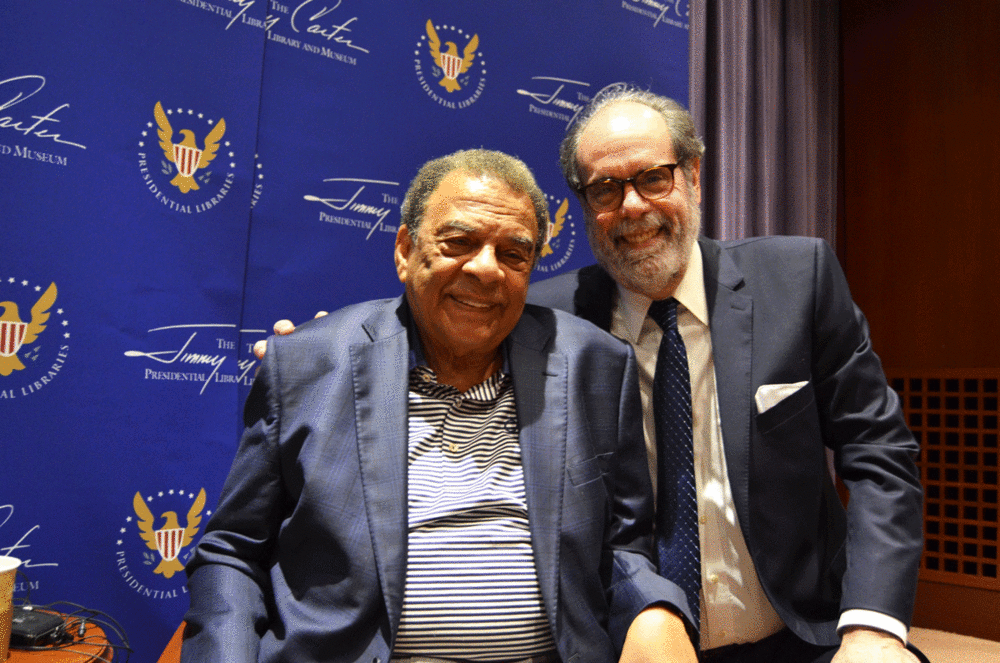Section Branding
Header Content
A Conversation With Andrew Young
Primary Content
As a teenager growing up in the Midwest, I watched the Southern civil rights movement unfold from a distance. I was in high school in a suburb just outside of Chicago when the Selma to Montgomery march took place and a college student when Dr. King was murdered. Like many Americans, I grew to have enormous admiration for the men and women who were courageously confronting racism and bigotry through non-violence.
And so when I moved to Atlanta in 1983 to work as a reporter at WSB-TV, it was thrilling to get to know some of the remarkable civil rights leaders I’d followed from afar. Ralph Abernathy was still alive, so was Hosea Williams. John Lewis was a member of the Atlanta City Council, Andy Young was mayor of Atlanta. And I got to know others whose names hadn’t been familiar to me back in Chicago, but who I came to realize were major figures in the Movement: James Orange, Joseph Lowery, Xernona Clayton so many others.
But it was Andy Young who had the biggest impact on me. He was the first political leader in Atlanta to reach out to get to know me. There was a day soon after I arrived in town that he drove me to his neighborhood off Cascade Road in Southwest Atlanta and suggested I might want to look for a house in one of the communities in the neighborhood. That was a pure Andy moment. Some of the most beautiful and well-appointed homes in Atlanta are in that section of Southwest. But it was, back in 1983, and still mostly is, the center of black professional life in Atlanta, and Andy knew it was unlikely that a youngish white boy from Chicago would settle down there, and I’m not sure I’d really have been welcomed if I did. Still, Andy’s impulse then and now was to try to find a way to bring people together.
Over the years, Andy and I got to know each other well. He loved to tease me about growing up in Chicago because he’s always said that the most frightening experiences he had in the civil rights movement came when Dr. King marched in Cicero, a white working class bastion just outside Chicago. Racism was never confined to the South, he’d remind me. I covered him in his final years as mayor, during his campaign for governor in 1990 (he lost the Democratic nomination in a runoff against Zell Miller), and in his years leading up to the Atlanta Olympics and as a world traveler ever since.
Today, Andy’s foundation is housed in offices in the Georgia Public Broadcasting building, and on occasion, I wander into his suite hoping to find that he’s in town and has time for a chat.
The bottom line of all this is simple: I love Andy Young. He can be frustrating and cranky, but he is one of the kindest and wisest people I’ve ever known. I hope that comes through in the conversation you’ll hear on this edition of “Two Way Street.”
By the way, we recorded this show in front of a live audience at the Jimmy Carter Presidential Library. I’m not the only one who loves Andy: the room was filled to capacity and unfortunately, some who came late had to be turned away.


